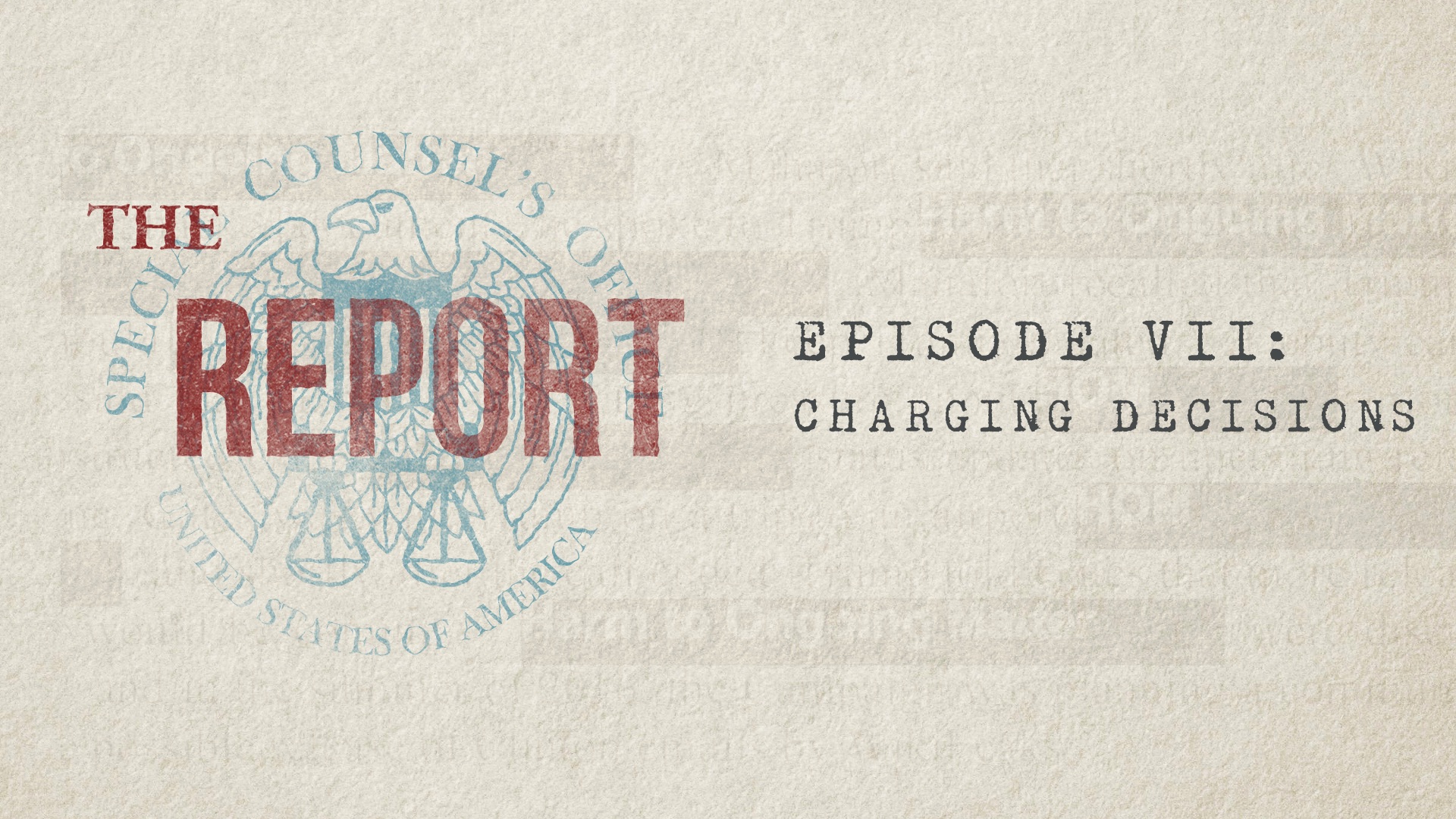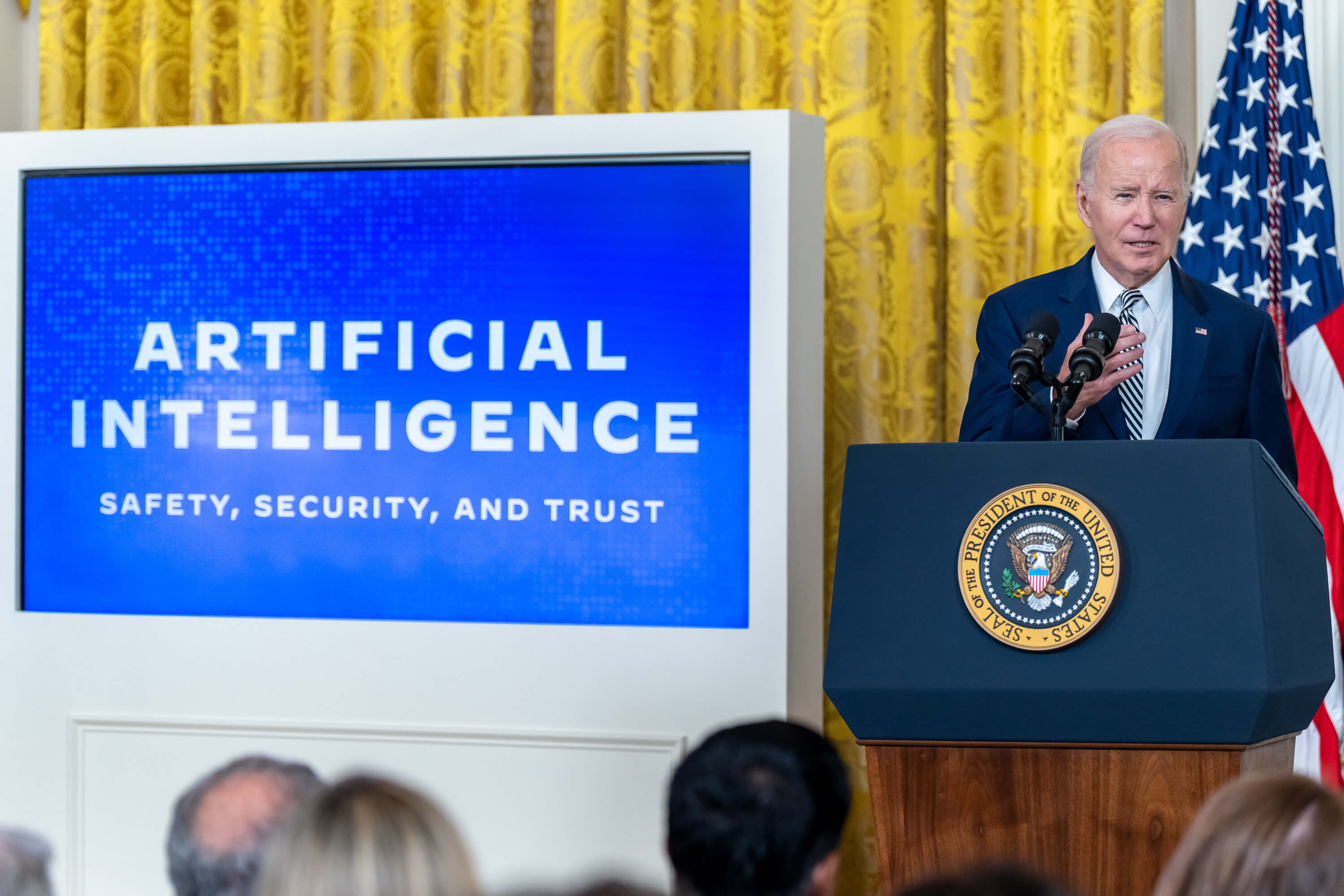The Report, Episode Seven: Charging Decisions
Today, we released the seventh episode of Lawfare’s narrative audio documentary, The Report. This episode covers the Special Counsel’s charging decisions—which individuals Mueller decides to prosecute, whose prosecutions and declines, and the reasons for his decisions.

Published by The Lawfare Institute
in Cooperation With

Today, we released the seventh episode of Lawfare’s narrative audio documentary, The Report, which tells the story Robert S. Mueller lays out in his famous 448-page document.
This episode covers the special counsel’s charging decisions—which individuals Mueller decides to prosecute, whose prosecutions and declines, and the reasons for his decisions.
Episode 1 covers the Russian social media campaign and the activities of the Internet Research Agency. Episode 2 focuses on the Russian hacking operation; the stealing of documents and emails from the Democratic National Committee, Democratic Congressional Campaign Committee and figures associated with the Clinton campaign; and the leaks of the stolen materials timed to affect the U.S. election. Episode 3 covers the Trump campaign’s involvement in the distribution of hacked materials. Episode 4 tells the story of two Trump Towers—one in Moscow, which Donald Trump sought to build even as he was denying having any business in Russia, and one in New York, where Russian representatives showed up promising “dirt” on Hillary Clinton. Episode 5 recounts the tale of three men associated with the Trump campaign: George Papadopoulos, Carter Page and Paul Manafort. Episode 6 details backchannel attempts by the Russians to influence the Trump campaign and transition on policy matters—an effort to reboot U.S.-Russia relations one secret meeting at a time.
In the seventh episode, we cover the legal conclusions that Mueller reaches about what the investigation found in Volume One. In short, did any of the conduct described in the first six episodes amount to a prosecutable crime in Mueller’s view? The special counsel charged Russian individuals and entities for their roles in the social media trolling and hacking campaigns. No Americans were knowingly involved in the trolling, but when it comes to the distribution of hacked emails, the story gets complicated.
What Mueller has to say about why he declined to prosecute Trump figures is as important as his explanations regarding the charges he did pursue. How do Mueller’s definitions of collusion, coordination and conspiracy affect his theory of the case? And what about all those foreign contacts? While Mueller does pursue charges related to that, the foreign countries in question aren’t Russia. Finally, of the great many lies told over the course of the investigation, which add up to crimes?
This episode features Mary McCord, Chuck Rosenberg, David Lauffman, Bob Bauer and Scott Anderson.
We’ll be taking the next two Fridays off before we launch Volume II of the Report. During the break, we’ll be putting out bonus episodes on parts of the report that didn’t make it into official episodes.
We are grateful to the William and Flora Hewlett Foundation and the Democracy Fund for their support for this project. If you want to support work of this type at Lawfare, please consider becoming a monthly donor by clicking here:






